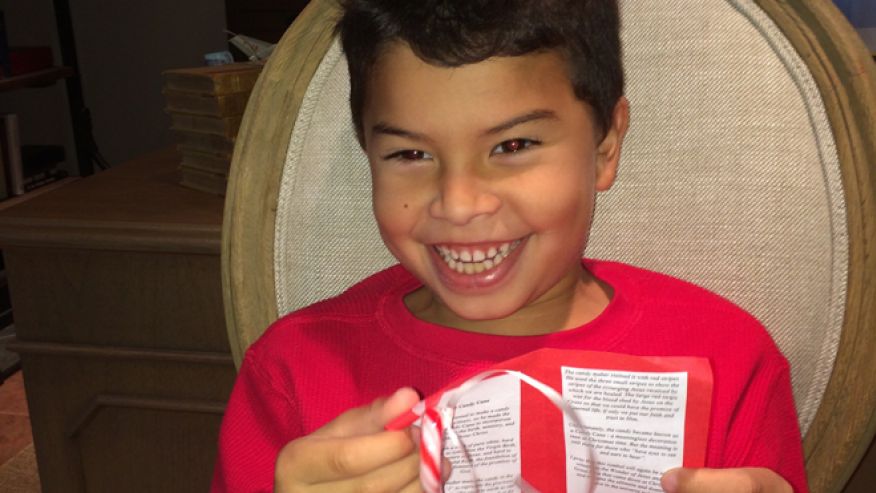
Christian parents in California are fighting to allow God back school after the school district prohibited their son from spreading the Good News of Christ to his classmates.
Last Christmas, six year old Isaiah Martinez wanted to spread Christmas cheer to his first grade class at Merced Elementary in the West Covina Unified School District by giving out candy canes with a message attached that explained the religious history of the candy.
According to the legend, a candymaker made the candy in the form of a "J" to represent the name of Jesus, and "stained it with red stripes to show the scourging Jesus received by which we are healed." The large red stripe was for the "blood shed by Christ on the cross so that we could have the promise of eternal life."
After explaining the story to her brother, Isaiah's sister helped him purchase candy canes and print the candy cane message and attached a copy to each one for him to hand out to his classmates.
Although Isaiah's classmates were permitted to hand out Christmas gifts expressing secular messages concerning Christmas, his teacher took possession of the candy canes once she saw that a religious message was attached. Then, after conferring with the school principal, the teacher told Isaiah that "Jesus is not allowed in school" and ripped the message from each candy cane and threw them in the trash while he watched. She then handed the candy canes back to Isaiah to hand out to his classmates, which he nervously did, fearing he was in trouble for trying to attempting to spread "good tidings" with the class.
Following the event, Isaiah's parents contacted the Advocates for Faith & Freedom, a non-profit public interest law firm, to combat the school's decision.
Advocates reportedly chose to take on the case, explaining that schools often have a "misunderstanding of the separation between church and state." The group sent a letter to the West Covina Unified School District demanding that the school apologize for how Isaiah was treated and adopt a policy prohibiting school officials from discriminating against or intimidating Christian and other religiously-affiliated students.
After conducting an investigation, the school district decided that their actions were warranted, and Superintendent Debra Kaplan released a statement to Los Angeles-area news outlets defending the teacher's actions.
"At the present time, we do not have any reason to believe that the teacher or any other district employee had any intention other than to maintain an appropriate degree of religious neutrality in the classroom and to communicate this to the child in an age-appropriate manner," Kaplan stated
In response, advocates appealed to the school board requesting once again that Isaiah be allowed to hand out the candy canes and that the school board revise its policies. When the school board also failed to adopt a new policy, Advocates appealed to the California Department of Education but the CDE has not yet responded.
"We shouldn't be raising our kids to be afraid of expressing their Christian faith," attorney Robert Tyler told NBC.
"The school has neglected to correct its actions, and after exhausting all options to avoid a lawsuit we were left with no choice but to file a complaint in federal court. We are asking the court to protect Isaiah's rights and the rights of others like him from having their religious speech censored. Students do not shed their First Amendment rights just because they enter into a classroom."
"It takes a special kind of evil to confiscate a six-year-old child's Christmas gifts. In this age of tolerance and diversity, public school educators seem to be under the impression that they can bully and intimidate Christian boys and girls," adds Todd Starnes, author of "God Less America."
If successful, the lawsuit will secure the right for Isaiah to share his Christmas gifts with his fellow classmates and the school will be required to change its policies.














